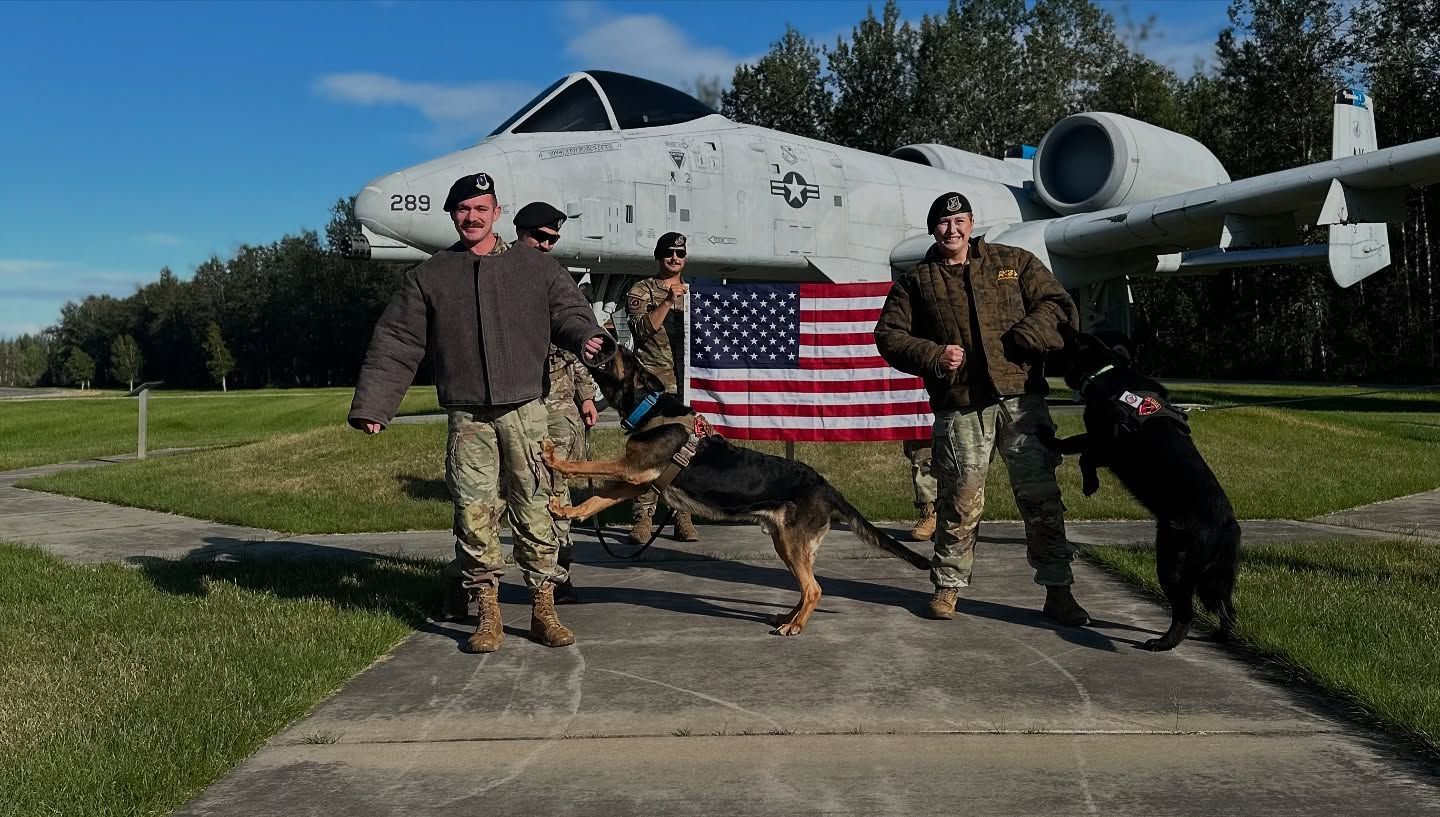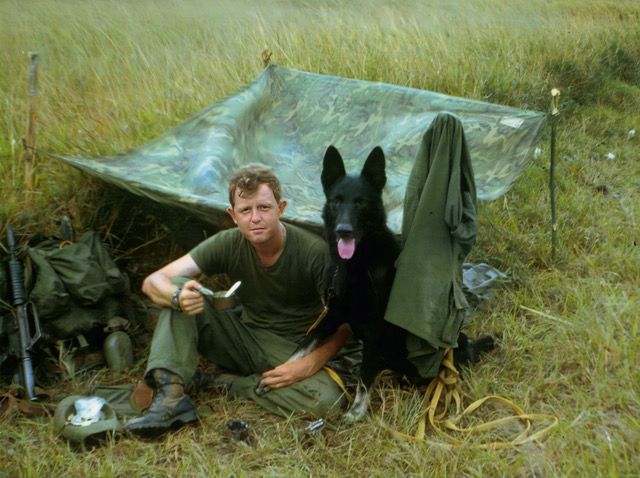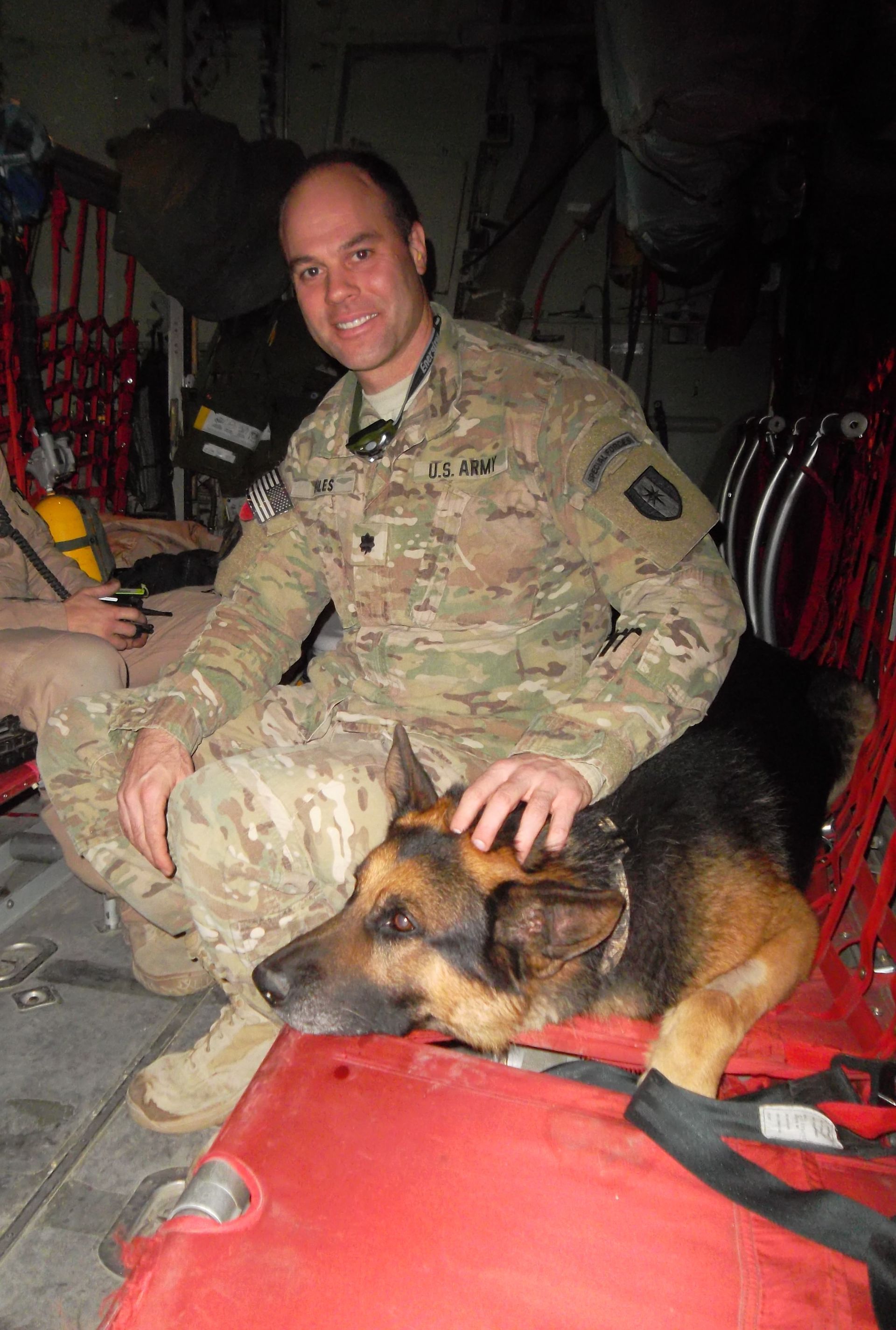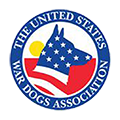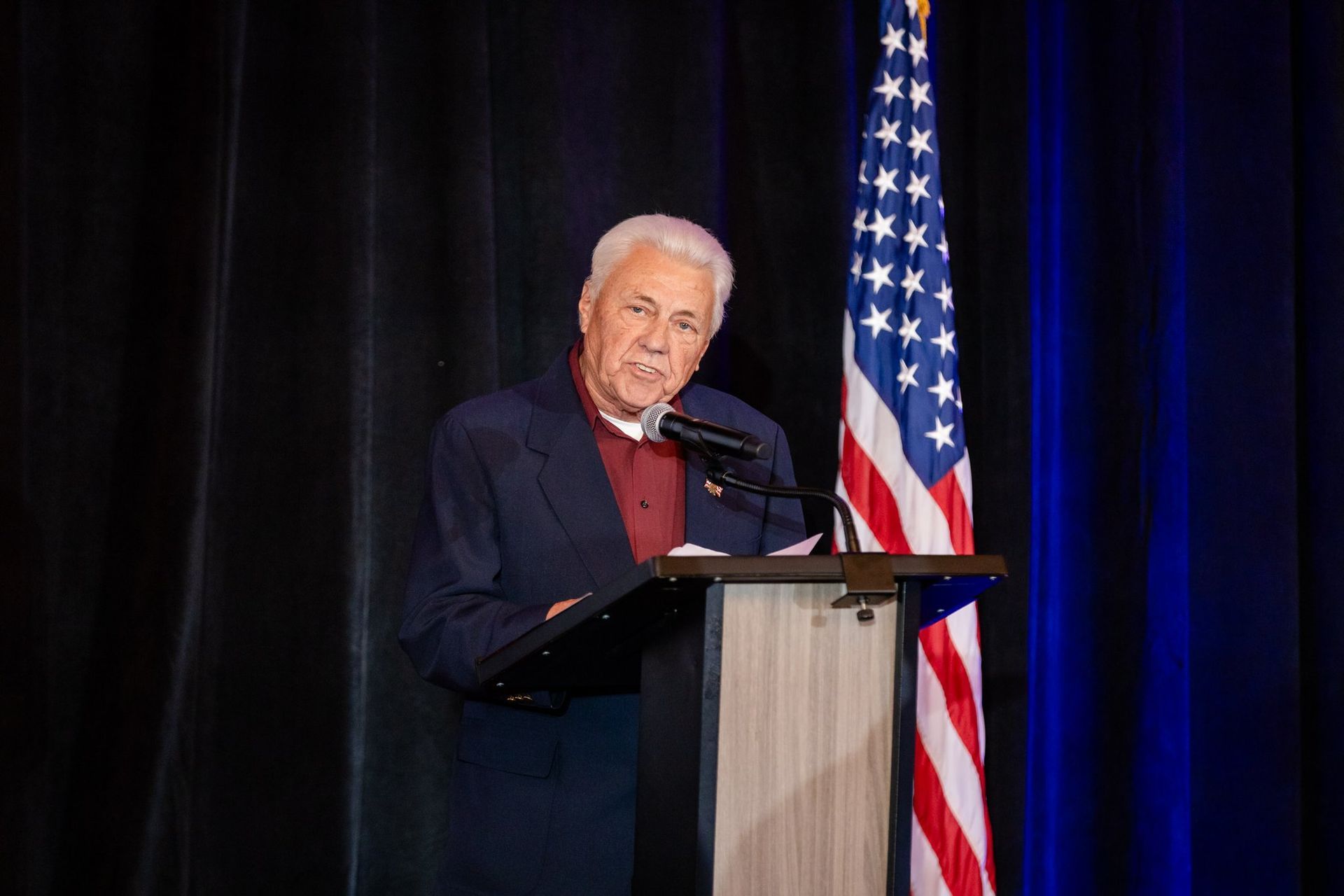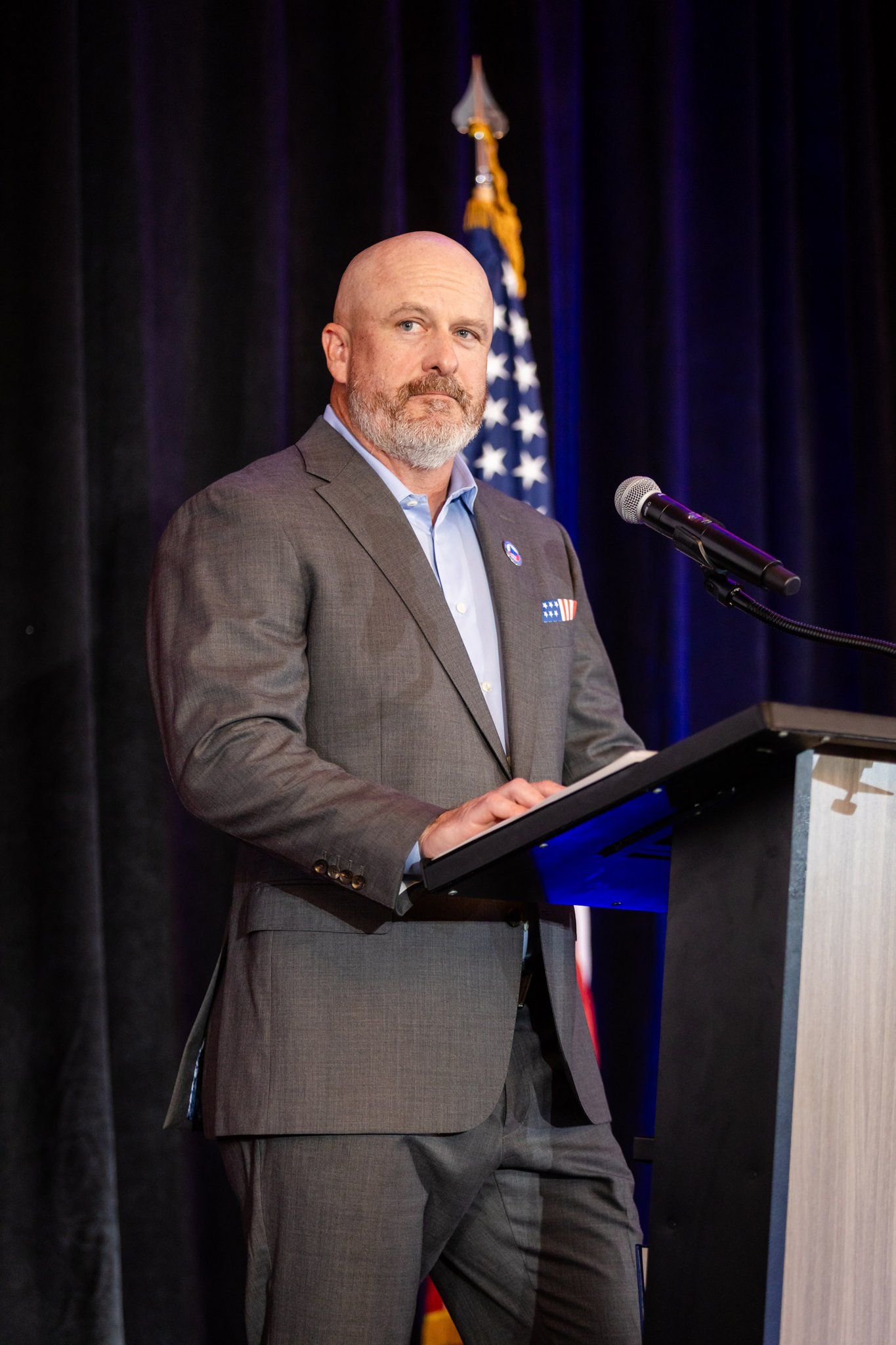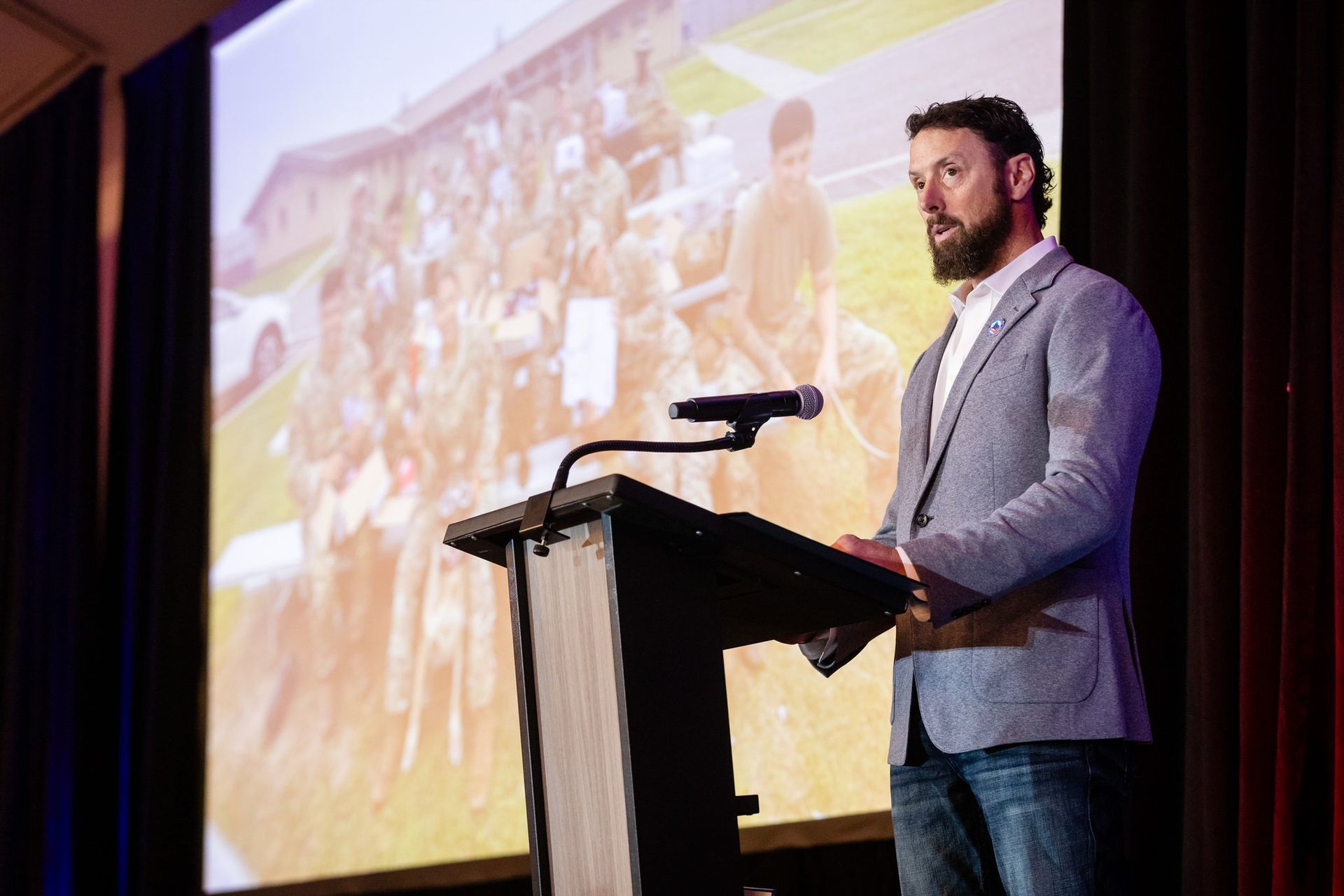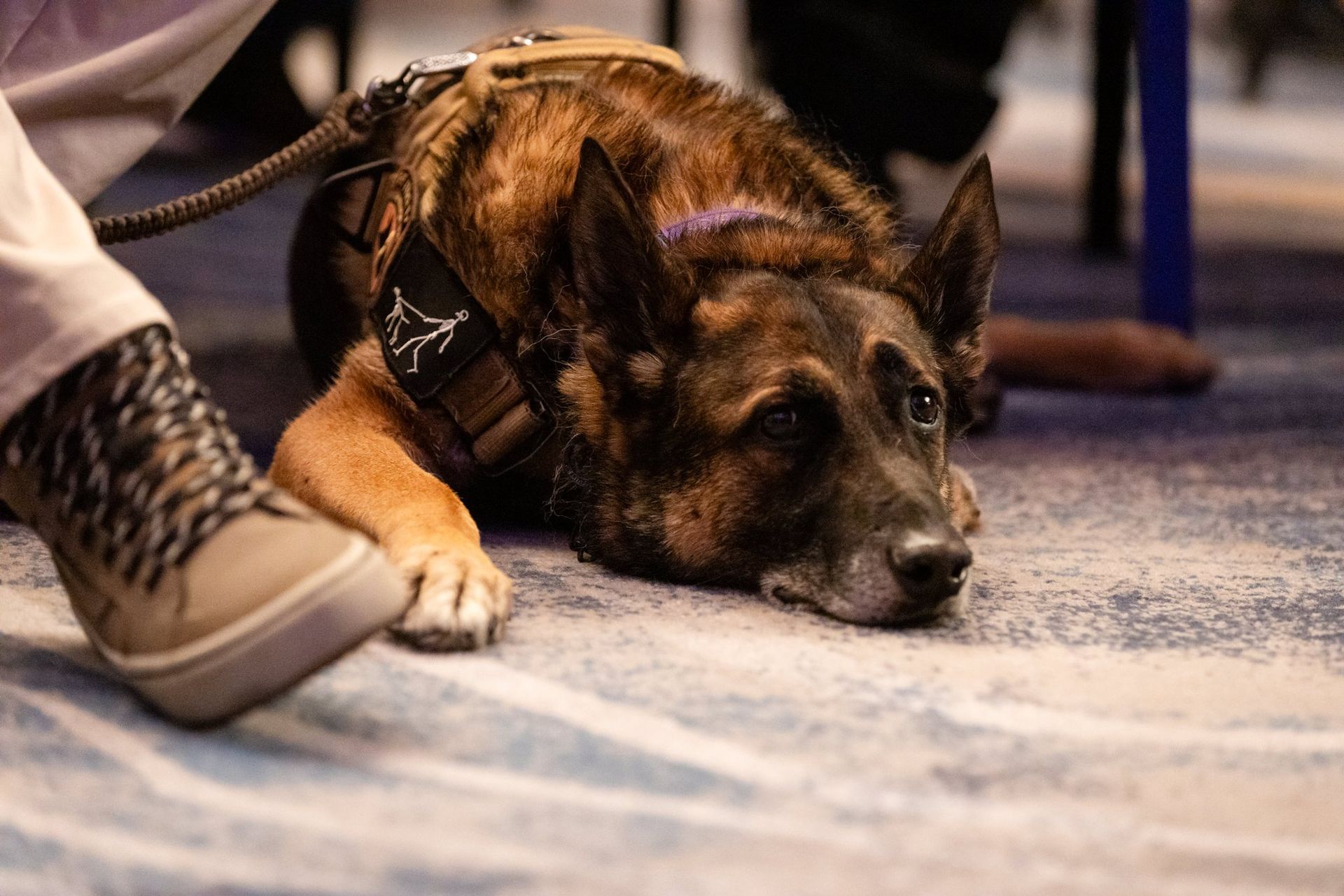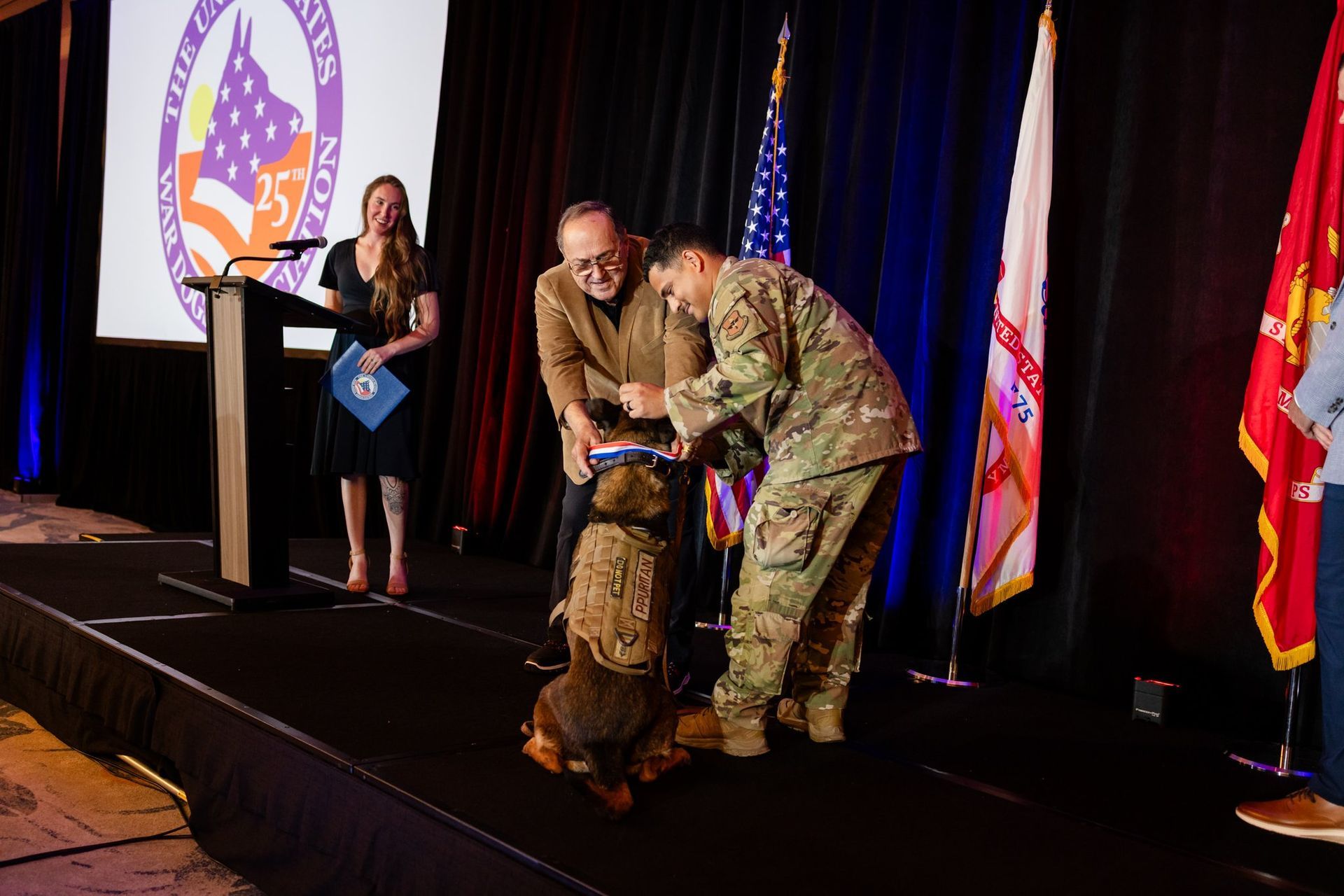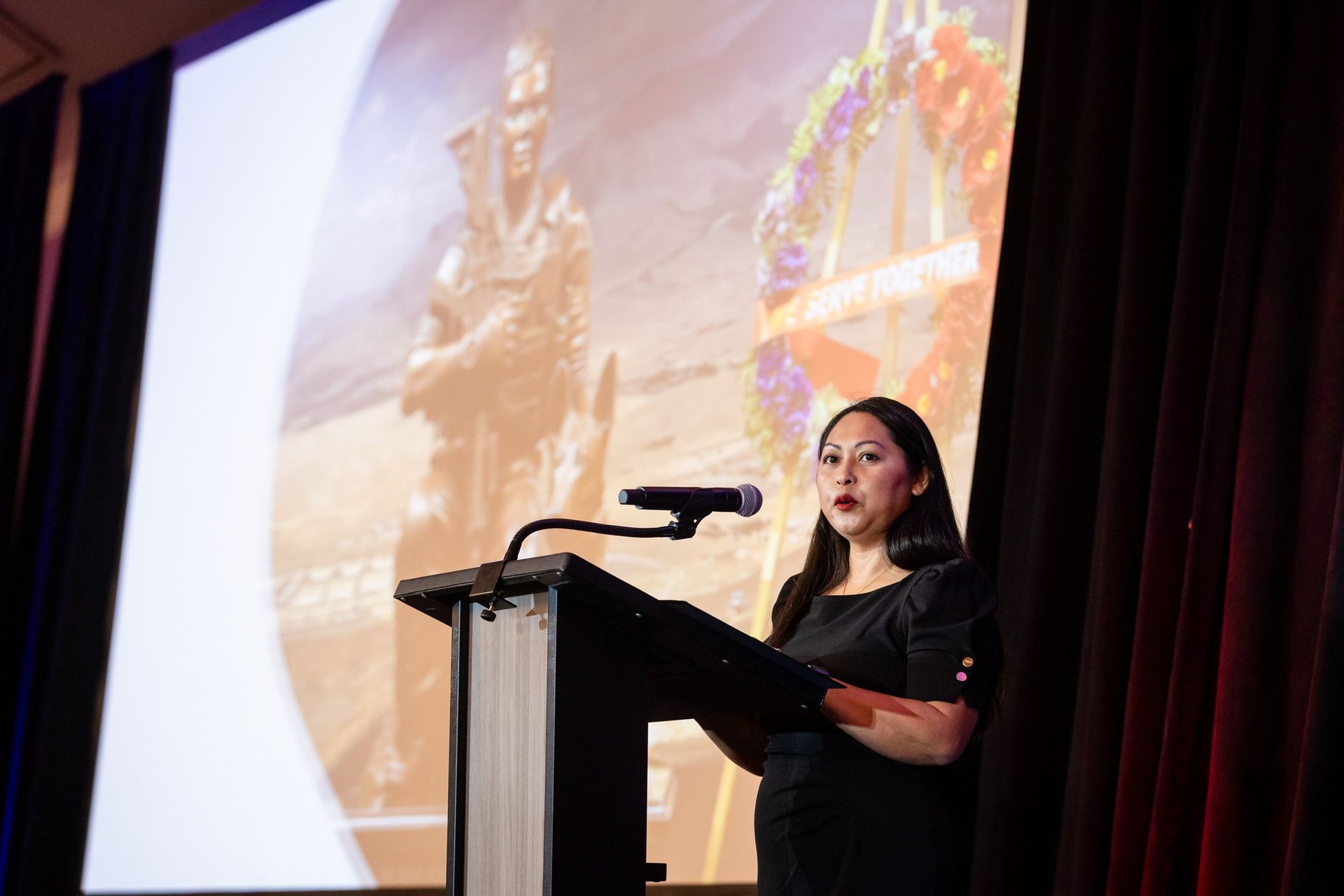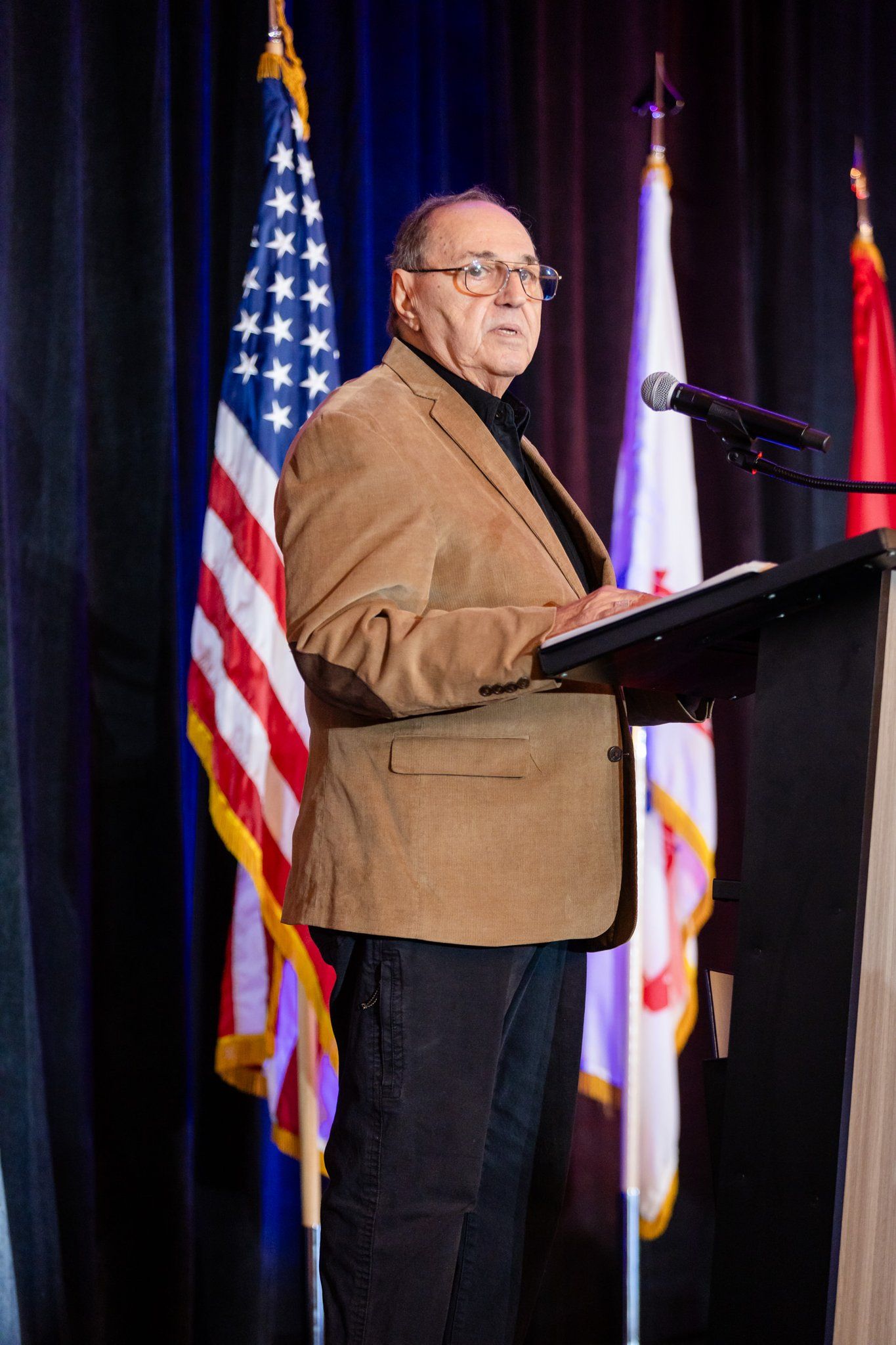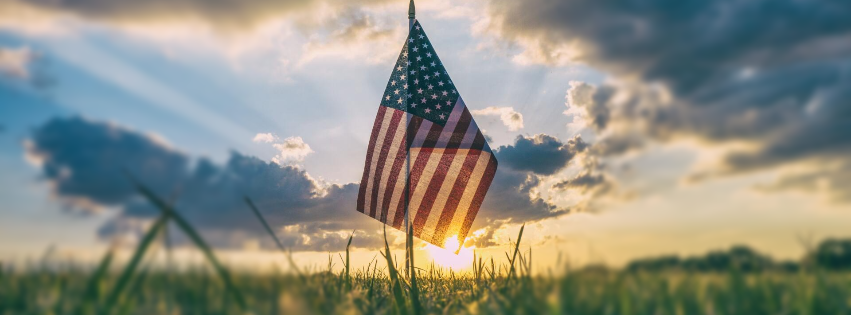
In Conversation with Will Chesney
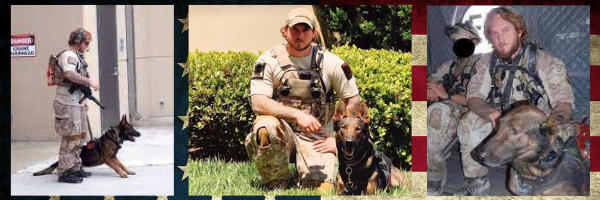
There is no doubt that the qualities that K-9 brings to the fight are unparalleled. The role of K-9 within the military exploded during the 2000s while the War on Terror raged, often meaning the difference between life and death for thousands of military service personnel who relied on the skills of dog teams in the field to lead the way.
Thousands of dog teams executed their work with quiet confidence and without fanfare, but when something big happens and the spotlight hits one of our brothers and their four-legged companion, the whole community stands to applaud their efforts. When news broke about the role that Navy SEAL, Will Chesney and his K-9, Cairo, played in the hunt for the world’s most notorious terrorist, plaudits for their work came from around the globe. Even the President of the United States asked for an audience with the dog that helped take down Osama bin Laden.
As Cairo posthumously receives the Animals in War and Peace Medal of Bravery, for outstanding bravery and service to his country on that fateful day in 2011, we speak to Will about the mission that changed the world and arguably, changed his life too.
SEAL Team Dream
Chesney – now 37 – joined the elite SEAL Team ranks in 2003, completing the gruelling basic training schedule – making the dream of a young boy from Lumberton, TX, a reality. “I was an ordinary kid from a small town in Texas. I wasn’t very big (five feet nine, 170 pounds) or a great athlete, but I wouldn’t quit. I knew what I wanted and what I wanted was to be a Navy SEAL!”
Will’s resilience and resolve that got him through the intense physical and mental training of combat conditioning and survival skills was nothing short of impressive.
Will Chesney’s move into K-9 was inspired by a moment that he will never forget. While on a training exercise in Kentucky, Will and his unit from SEAL Team 4 were given the chance to watch the demo of a relatively new program within Navel Special Warfare. Will recalls: “One of the instructors asked the class to stand up if you’ve ever had your life saved by a dog. Everyone in the room stood without the slightest hint of irony. These guys were serious and after seeing the incredible skills of the dogs and their handlers, my interest was piqued.”
But it would be during Will’s 2008 deployment to Afghanistan with SEAL Team 6 – the most elite force within the Navy – where Will’s decision to become a dog handler was cemented. The unit was stationed with two Navy SEAL dog teams, as Will recalls: “Falco and Balto were sleek, beautiful Malinois that handled themselves with poised, needlepoint accuracy and incredible power. Watching them work was awe-inspiring to me – it changed my career path.
“The world of K-9 made me step out of my comfort zone”, says Chesney. “I’m a quiet guy, naturally, but training dogs requires you to be a noisy, energetic, enthusiastic character. You soon lose your inhibitions when you’re making high-pitched noises across a field to your dog when they did something good.
“The amount of effort and energy required to train a dog is immense and a real test of patience. A bad training day can diminish you so much, but there is nothing better in the world after a great training session.”
Following Will’s deployment to Afghanistan in the summer of 2008, he completed the nine-week basic handlers’ course and spent the next 12 months training in K-9. He first met Cairo – a large and striking Belgian Malinois – and after a two-week initiation for the new dog handlers, they dog team was officially paired together.
Like so many US MWDs, Cairo was acquired from a breeding program in the Netherlands and brought over to California to be tested out for the SEALs. As SEAL trainer Don Christie watched the canine candidates perform, it was Cairo that stood out from the rest when it came to bite work. “He looked great”, explains Don Christie. “And he was very strong. I remember him biting calmly on the suit, and just hanging on. In a bite test, you yell at the dog. You try to dissuade them. Cairo was not easily dissuaded.”
Cairo’s determination, strength and cool head made him an easy pick and he, along with eight other puppies, we shipped to Virginia to begin training with the SEALs.
“He absolutely loved to work”, recalls Chesney. “He had the sweet personality that made him friendly and endearing, while having the natural aptitude and skill to be incredible at his job.”
Deployed
After months of intense training, Cairo and Will deployed together in June 2009 to support Operation Enduring Freedom in Afghanistan. “We had trained for almost every eventuality, but you never truly know your dog until you see him in the fight. Cairo was sensational. He quickly became one of the boys and earned his stripes with the unit.
“Having watched him train and knowing how much he enjoyed biting, I often wondered what might happen if an unsuspecting civilian became caught in the crosshairs when Cairo was in hunting mode. On one mission during this deployment, I would witness exactly what he would do.
“The night Cairo got his first bite, he caught the guy by the arm and almost tore it off. The damage he did startled me but to my amazement, we found a tiny baby, bundled in blankets near where the man had been hiding. Cairo had run past the baby to get to the bad guy and in those moments of adrenaline – stalking his prey before he attacked – I could hardly believe he hadn’t harmed the child.
“My only answer as to why Cairo – who had, with all certainty, detected the presence of the child – understood right from wrong. I felt it deep within me at that moment that he was one seriously smart dog.”
Shots
Later in that same deployment, Cairo would sustain a near-fatal injury that rocked Will to his core. “We were on a night mission to take a suspected bomb-making facility. As we drew closer to the target in the helicopter, we watched four men with large packs, leave on two motorcycles. We had to be completely sure that they were bad guys and not decoys or civilians, so we landed and went after them on foot.”
The dog team would prove critical as the targets disappeared into a thick tree line. Will used the wind to help Cairo to track their scent, which he caught almost immediately. “I sent him forward and I watched as he weaved in and out of the trees, moving deeper into the undergrowth as he went. Soon, he was completely hidden from view, which is when the gunfire began.”
Cairo had been shot at point-blank range but somehow, despite being seriously hurt, had managed to limp back to Chesney before collapsing. “I thought he was dead. He was covered in blood and his eyes were slits. Word had already gone out on the radio that we had suffered a casualty. That Cairo was a dog simply didn’t matter. He was one of us.”
A combat medic worked on him in the field, stuffing gauze into this chest wound. Cairo had also been hit in the right foreleg and by the time the MEDEVAC helicopter picked him up and took him back to the forward operating base, he needed two hours of surgery on his serious injuries. As soon as he was stable enough, I flew with him to Bagram.
In transpired in the days that followed, just how integral Cairo had been on that fateful mission that almost killed him. Not only had Cairo engaged one of two insurgents on the ground, hidden within the tree line, but he had been shot by another from above. The guy was perched in a tree, a few branches up and fired at close range. He really was lucky to be alive.
Cairo’s actions had exposed the enemy’s ambush position, undoubtedly saving lives within his unit. In heroic fashion, Cairo bounced back remarkably from his injuries, which included a shattered femur, and was flown back to Lackland Air Force Base, TX, to complete his recovery. Will was forced to say goodbye to his best friend – still having two months of his deployment to complete.
“I stayed with him for three days straight while he recovered at Bagram. Taking him for slow, long walks and hand feeding him until he could eat on his own. I was his dad and I wanted him to feel how much I cared for him. Saying goodbye was a real wrench but he was going to the best facility in the world for MWDs so I knew he would be well cared for. I only hoped that our paths would cross again – both personally and professionally.”
Will wouldn’t have to wait long before Cairo had been given a clean bill of health and returned to Virginia to re-join SEAL Team. Will said: “I couldn’t believe how much he had been through and how he had bounced back, but it played heavy on my mind that he would carry mental scars from the ordeal he had endured.
“It was a few weeks after my return from Afghanistan that Cairo landed back in Virginia, having been cleared for operational duties once more. He squeaked excitedly when I entered the kennels and jumped on my chest to greet me. I took him home that night and we enjoyed a steak together. My boy was home and better than that, we had been reunited as partners.”
The dog team deployed again to Afghanistan in the fall of 2010, following almost a year of intense training in Virginia to ready Cairo their next tour – an extended stay in the war zone, based out of Jalalabad Air Base. When the pair returned to Virginia in March 2011 though, it was time to go their separate ways. “It was time for me to go back to life as an operator and with Cairo having served his country with diligence on two deployments, it was time for him to enjoy a slower pace of life.”
Cairo became a spare dog for the Navy. At six years old, he still had a lot to offer and his impeccable training and temperament made him an excellent candidate to help train new handlers. The hiatus for the pair would be short-lived as, while on a training exercise in Yuma, AZ, Chesney was asked to return to Virginia as soon as possible and collect Cairo on the way.
UBL
The mission, which was swathed in secrecy, even from Chesney, required a reliable and experienced dog team. “Cairo was the best in the business and I was lucky enough to be his handler. Fortunately for me, we were a package deal”, recalls Will.
While preparations were made for the secret mission, rumours pulsed around the team. “There were two dozen of us, split into four separate teams. Cairo and I were in the team that would take control of perimeter duties associated with the target. We still didn’t know any mission specifics, apart from that we would be going in to find a high value target in a compound, much like the ones we had encountered on our other deployments.
“Bin Laden’s name bounced around the teams. As the leader of Al Qaeda and the mastermind behind the 9/11 attacks, he was the single biggest target for the US military. Taking him out would seriously hurt his terrorist organisation. Could we really be the ones tasked with getting him?”
In a training facility in North Carolina, on April 10 2011, Chesney and his fellow SEALs were given the details. “We’re going after UBL.” Usama (or Osama, as coined by western media) bin Laden. “The hairs on the back of my neck stood up”, Will recalls.
The magnitude of the mission – known as Operation Neptune Spear – and the clear dangers it posed for the team were laid out. “We all made our peace with our fact that this would be a suicide mission. But if it meant that we got the guy, I was good with it.”
The SEALs were provided with a life-size replica of the compound and rehearsed the mission from sunrise to deep into the night. This was closely followed by a further training protocol in the Southwest, where the geography and climate of the mission would be mimicked more accurately.
“At the end of April, we returned to Virginia and told to get our affairs in order. I made a will, paid up my life insurance and called my dad. Calling my mom was not usual for me before deployments so I didn’t want to alarm her by acting out of character.”
Geronimo
The plan was to move in on the compound in Abbottabad on MH-60 Black Hawks from Jalalabad. Once the SEALs had blasted open the gates and doors into the compound, Cairo and Chesney – part of the perimeter patrol crew, were responsible for clearing any security presence or move along any locals who came to investigate what was happening. Cairo would use his detection skills to clear the area of explosives, weapons and hidden threats.
After two laps of the perimeter, the dog team moved inside, Will carrying Cairo over the mass of broken glass and debris that had been left in the wake of the 20 SEALs that were inside the main house.
“We couldn’t drop our guard for a moment. Trip wires connected to explosives or teams of hidden insurgents could surprise us at any moment. We had to be ready.”
Having successfully swept the first floor, Will and Cairo made their way up to the second floor of the building. “It seemed impossible that the place wasn’t laced with explosives so I kept Cairo on task – tracking any potential explosive odors. He was our best line of defence in this situation.”
But as the dog team made their way towards the third floor, Will heard the news that it was over. Cairo wasn’t needed upstairs. The job was done. Just then, the radio burst into life with confirmation of the mission’s success: “For God and country, Geronimo, Geronimo, Geronimo, EKIA” – mission code which meant that Osama bin Laden had been killed in action.
Will and Cairo had been part of a mission that will go down in history. Their partnership, skill and devotion as a dog team put them on that Black Hawk and take their place as an integral part of the team.
The course of Will’s career continued when they returned to Virginia and in the Spring of 2012, he returned to Afghanistan as a SEAL operator. Cairo joined the team, but as a spare dog in the FOB kennels.
Will’s life was about to take a serious turn as a seemingly routine (for SEALs, at least) night-time mission ended with Will and two of his teammates being blown up by an enemy grenade.
The blast left Will with a traumatic brain injury (TBI) that would rob him of the career he loved so dearly. It also took away his quality of life as he succumbed to chronic pain and depression.
“I had great bosses who allowed me to joining the training squad, so that I could still work on base. But my health was in bits and my confidence was at an all-time low. Of all the visits to hospital and different treatment regimens I tried, the only thing that made me feel any hope at all, was visiting Cairo at the kennels.”
Cairo had returned from deployment to Virginia as a spare dog for the SEALs canine program, but for Will, he would be the best medicine and reach far beyond the numerous medical procedures, drug regimens and rounds of therapy.
In the fall of 2013, Cairo’s retirement was announced and Will was straight in there to lay claim. “He was meant to be with me. Plain and simple.”
It took several months and a painstaking application process, but Cairo was finally given the Navy nod to be adopted by Will. Cairo spent a year with Will, his girlfriend Natalie and their two other dogs, Hagen and Sterling before he was diagnosed with an aggressive stomach cancer. He was put to sleep on 2 April 2015.
Decorated
Following Operation Neptune Spear, the SEAL team members were all awarded the Silver Star for “gallantry in the face of an enemy to the United States”, but, as is customary, Cairo could not receive the award. On March 9 2022, Cairo’s actions were formally recognized by the Animals in War and Peace Medal of Bravery – an award designed to honor outstanding acts of bravery and devotion to duty.
“I hate that Cairo is not here to receive the award in person, but I am so proud that he is being honored in this way. He was an incredible dog and will go down in history as a military legend. He saved my life in more ways than I care to mention. I still miss him every day and I am thrilled to see his name held in such high esteem. This is for you, buddy. I love you. Great job.”
No Ordinary Dog, by Will Chesney and Joe Layden is out now and tells the full story of Cairo’s remarkable career.
Excepts from the book were used in the writing of this article.
